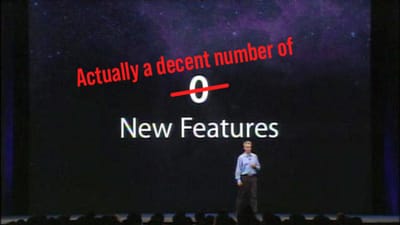Art vs. Tools
Google I/O is the week of the year where I like Google the most. It's where Google shows off some of their new tech and spells out what they believe. As far as tech goes, this was a less-than-thrilling event. There were very minor updates all around with a few sparks of excitement (Now on Tap, primarily). On the beliefs side, Google got my attention with their "the next billion users" line. They just crossed the 1 billion active users mark, and are looking at how they can get the next billion people on Android. To get that many more people using smart devices you have to venture outside the first world and enter some of of the poorest countries. You’d have to get smart phones and computers in the hands of people who completely missed out on the personal computer revolution. As much as I love Apple and their products, Apple isn’t going to be company who does this selling $600+ phones and $1,000+ laptops.
Most people who take the time to read tech blogs are those who have a decent amount of disposable income and a passion for technology. In the grand scheme of things we are a pretty niche audience. I enjoy the debates of which flagship phone is the best or whether OS X is better than Windows, but I realize that these debates are only had at the high end of the market.
It’s only here that we discuss software like it is a piece of art. We are a rare breed of people who want apps to cost more and are weary of free apps. We talk about “if you’re not paying for the product, you are the product” as a way to legitimize spending money on things we could get for free. We care deeply about design details like the alignment of holes on the bottom of our phones.
At the same time we are having these discussions, there are billions of people out there who don’t consider technology to be a hobby and just want a tool to get their work done. Most people want to see pictures of their friends and family on Facebook, but don’t care what the pixel density is of their screen.
This is why it bothers me a little every time someone criticizes a product for being "too cheap.” The Pebble Time for example, is not as feature packed as the Apple Watch, but it does achieve the baseline for what a smart watch should do and does it pretty well. If you have an iPhone and have the means to drop $400+ on a watch, then I think you should get the Apple Watch. But if you need a smart watch and simply can’t make that work, the Pebble is a completely sufficient device and will bring you lots of joy.
In the same vein, this Chromebook is slower than a Macbook, is thicker, and is made of cheap plastic, but it costs $155!!!!
I applaud Google’s interest in getting the entire world online. A cynic will tell you they just want everyone online so they can get more ad views and make more money, and that’s partially true. However, I think it’s hard to make the argument that enabling more people access to the internet is a bad thing. The web enables so many things that were impossible before, and we want that to be in as many people’s hands as possible. If it takes sub-$200 laptops, cheap smart phones, and free web services to get the next billion people online, then they have my full support. I won’t personally be using most of these services and devices, but I certainly won’t be looking down on those who do or the companies who make them.


